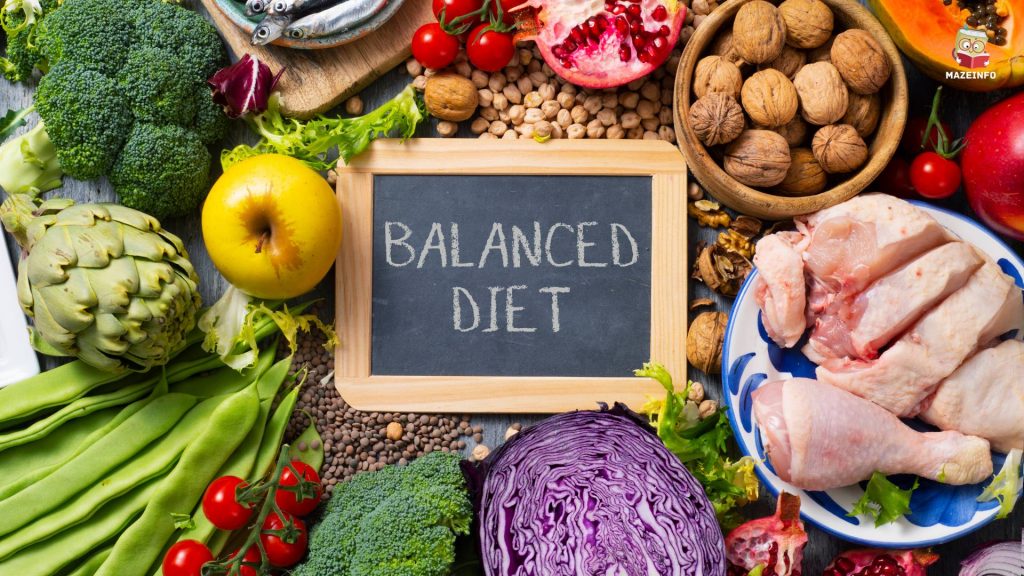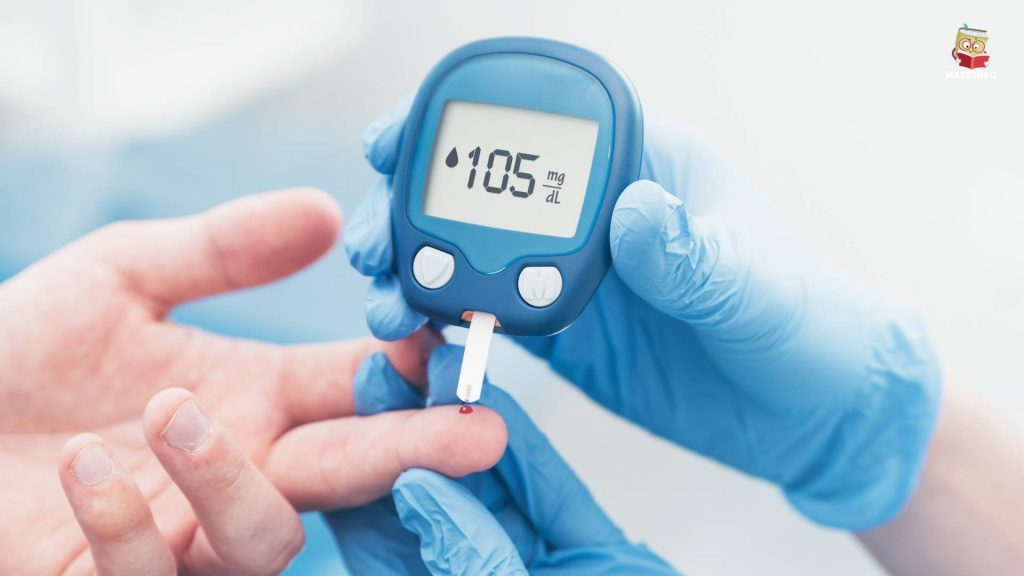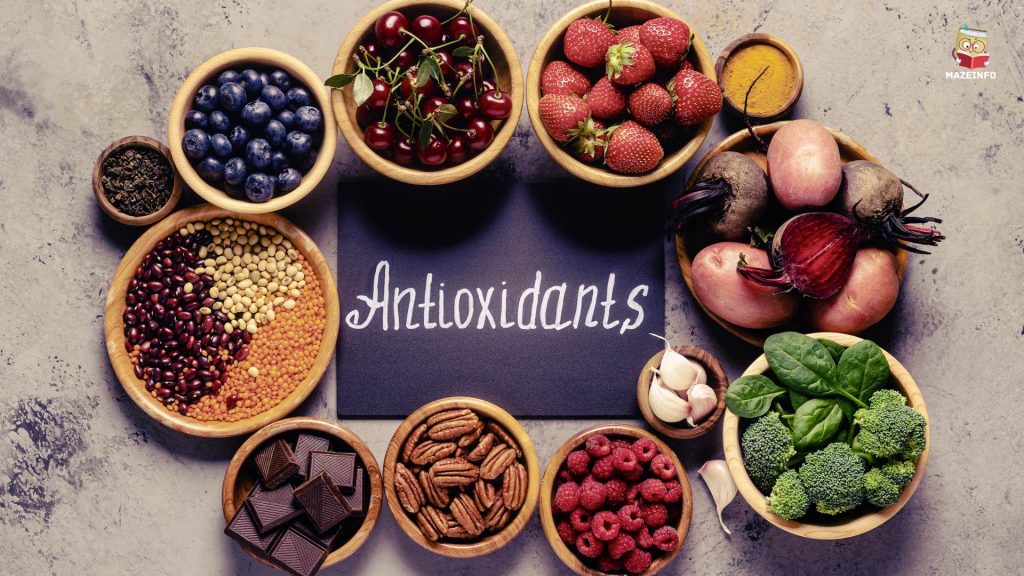In today’s fast-paced world, staying focused can be a challenge, especially with constant distractions around us. While many people rely on caffeine or energy drinks to get through the day, a sustainable way to improve focus with diet changes is by making the right dietary choices. What you eat directly impacts brain function, and incorporating brain-boosting foods can help you achieve sharper focus, better memory, and improved mental clarity. In this article, we’ll explore the essential diet changes that can help you stay focused naturally.
The Connection Between Diet and Focus

Our diet is more than just fuel for the body; it also directly affects our brain’s ability to focus and function efficiently. When we choose foods that are high in nutrients, we provide our brain with the necessary resources to maintain mental clarity and concentration throughout the day. Conversely, a diet filled with processed foods and refined sugars can impair cognitive performance, leading to brain fog and difficulty concentrating.
How Poor Diet Impacts Concentration and Memory
A diet low in essential nutrients can have detrimental effects on memory and focus. For instance, foods that cause blood sugar spikes, like sugary snacks, can lead to rapid drops in energy, causing fatigue and reducing our ability to stay focused. Over time, a diet lacking in healthy fats and antioxidants can lead to oxidative stress, damaging brain cells and impacting overall cognitive function.
Key Nutrients for Mental Clarity
Certain nutrients have been shown to boost cognitive performance. For instance, B vitamins are essential for maintaining mental sharpness, while omega-3 fatty acids play a role in improving memory and reducing brain inflammation. Including these nutrients in your daily diet helps maintain optimal brain health, supporting concentration and reducing age-related cognitive decline.
By understanding the link between diet and focus, you can make intentional food choices that help boost mental performance and keep your mind sharp throughout the day.
The Role of Omega-3 Fatty Acids to Improve Focus with Diet Changes

Omega-3 fatty acids are essential nutrients that play a critical role in brain health and cognitive function. These healthy fats, especially DHA (docosahexaenoic acid), are a key structural component of the brain and are vital for maintaining mental clarity, focus, and overall cognitive performance. Research suggests that people who consume a diet rich in omega-3s experience improved memory, better concentration, and even a reduced risk of age-related cognitive decline.
Benefits of Omega-3s for Mental Clarity and Focus
Omega-3 fatty acids support neurotransmitter function, which helps brain cells communicate more effectively. This efficient cell communication is essential for maintaining focus and processing information quickly. Additionally, omega-3s help reduce inflammation in the brain, which can lead to improved mental clarity and reduced brain fog. Regular intake of omega-3s can also help combat symptoms of anxiety and depression, further enhancing your ability to concentrate and stay mentally sharp.
Foods Rich in Omega-3 Fatty Acids and How to Incorporate Them
To get enough omega-3s in your diet, focus on incorporating fatty fish like salmon, mackerel, and sardines, which are excellent sources of DHA and EPA (eicosapentaenoic acid). For those who prefer plant-based sources, flaxseeds, chia seeds, and walnuts are good options, providing ALA (alpha-linolenic acid), another type of omega-3 that the body can partially convert to DHA and EPA.
Here are a few easy ways to add more omega-3s into your diet:
- Add flaxseeds or chia seeds to smoothies, oatmeal, or yogurt.
- Include fatty fish like salmon in your meals at least twice a week.
- Snack on a handful of walnuts or add them to salads for a crunchy, brain-boosting topping.
By consistently including omega-3-rich foods in your diet, you can support better focus, improve memory, and promote long-term brain health.
Best Foods to Maintain Steady Blood Sugar Levels

Maintaining stable blood sugar levels is essential for consistent focus and energy throughout the day. When blood sugar spikes and then drops, it can lead to fatigue, irritability, and difficulty concentrating. A balanced diet with low-glycemic foods—those that don’t cause rapid spikes in blood sugar—can help keep your energy steady, improving mental clarity and concentration.
Why Blood Sugar Fluctuations Can Disrupt Focus
When you consume foods high in refined sugars or simple carbohydrates, such as sweets or white bread, blood sugar levels rise quickly, providing a temporary energy boost. However, this is often followed by a rapid crash in energy, making it hard to stay focused. These frequent fluctuations can lead to mood swings and reduced cognitive performance over time. By choosing foods that maintain a steady release of glucose, you can avoid these highs and lows, supporting sustained focus and productivity.
Top Low-Glycemic Foods to Keep Energy and Focus Consistent
- Whole Grains – Foods like oats, quinoa, and brown rice have a low glycemic index and release energy slowly. This helps maintain blood sugar levels and supports prolonged concentration.
- Nuts and Seeds – Almonds, walnuts, and chia seeds contain healthy fats and proteins that stabilize blood sugar, providing long-lasting energy without sudden spikes or crashes.
- Leafy Greens – Vegetables like spinach, kale, and broccoli are low in carbohydrates but rich in fiber and antioxidants, which help keep blood sugar stable.
- Berries – Blueberries, strawberries, and raspberries are low in sugar but high in fiber and antioxidants, making them a great snack to maintain energy levels without a sugar rush.
- Lean Proteins – Foods such as chicken, fish, eggs, and tofu help stabilize blood sugar and prevent energy dips by providing protein that digests slowly.
By focusing on these low-glycemic foods, you can support steady energy and improve your brain’s ability to stay alert and focused throughout the day. Incorporating these foods into meals and snacks is a practical way to enhance mental clarity and productivity naturally.
Also, Read More: What Are The Three Keys to Good Health?
Antioxidant-Rich Foods to Protect Brain Cells

Antioxidants are powerful compounds that help protect the body and brain from oxidative stress and damage caused by free radicals. Oxidative stress can impair brain function and lead to issues like memory loss, fatigue, and difficulty focusing. By including antioxidant-rich foods in your diet, you can support brain health, enhance focus, and protect brain cells from age-related cognitive decline.
How Antioxidants Reduce Oxidative Stress on the Brain
The brain is particularly vulnerable to oxidative stress because of its high energy demands and rich oxygen supply. Over time, exposure to free radicals from the environment, poor diet, and even stress can damage brain cells and reduce mental clarity. Antioxidants neutralize these harmful free radicals, reducing inflammation and promoting healthier brain function. This protection can improve mental clarity, focus, and memory over the long term.
Best Sources of Antioxidants for Brain Health
Incorporating antioxidant-rich foods into your diet is a practical way to support cognitive function. Here are some top sources:
- Berries – Blueberries, strawberries, and blackberries are high in antioxidants, particularly flavonoids, which have been linked to improved memory and focus.
- Dark Chocolate – Rich in flavonoids, dark chocolate (with at least 70% cocoa) can improve blood flow to the brain, enhancing mental alertness and reducing brain fog.
- Green Tea – Known for its antioxidants, particularly EGCG, green tea can help reduce inflammation, promote relaxation, and support concentration.
- Leafy Greens – Vegetables like spinach, kale, and Swiss chard are full of antioxidants, vitamins, and minerals that help protect the brain from oxidative damage.
- Nuts and Seeds – Almonds, walnuts, and sunflower seeds contain vitamin E, a powerful antioxidant that has been shown to protect brain cells and improve mental performance.
- Brightly Colored Vegetables – Bell peppers, carrots, and sweet potatoes are rich in carotenoids, antioxidants that help support brain health and reduce oxidative damage.
Incorporating these antioxidant-rich foods into your diet can help you achieve better focus, protect your brain cells, and support overall mental well-being. Small changes, like adding a handful of berries to your breakfast or snacking on nuts, can make a big difference in cognitive function over time.
Importance of B Vitamins for Mental Sharpness

B vitamins play a vital role in supporting brain health and maintaining mental sharpness. These vitamins—particularly B6, B9 (folate), and B12—are essential for producing neurotransmitters, which are chemical messengers that help brain cells communicate. Adequate levels of B vitamins are linked to improved focus, memory, and cognitive performance, while deficiencies can lead to issues such as brain fog, fatigue, and even mood changes.
Role of B Vitamins in Supporting Cognitive Function
B vitamins are involved in several processes that are essential for cognitive function and mental clarity:
- Vitamin B6 helps produce serotonin, dopamine, and GABA—neurotransmitters that are crucial for mood regulation and focus.
- Vitamin B9 (Folate) supports brain cell repair and growth. It is also essential for maintaining memory and overall mental sharpness.
- Vitamin B12 plays a role in producing myelin, a protective coating around nerves, which is essential for fast and efficient signal transmission between brain cells.
By ensuring sufficient B vitamin intake, you support brain function at a cellular level, improving focus and cognitive resilience, especially in periods of high mental demand.
Key Foods Rich in B Vitamins and Easy Ways to Include Them
Getting enough B vitamins from your diet is simple with these nutrient-rich foods:
- Leafy Greens – Spinach, kale, and broccoli are excellent sources of folate, which is essential for brain health and memory.
- Whole Grains – Foods like oats, brown rice, and quinoa are rich in B vitamins, especially B6 and B12, which help with energy and focus.
- Eggs – A fantastic source of B12, eggs are an easy way to boost mental clarity. Try adding eggs to breakfast for sustained focus.
- Fish and Meat – Fatty fish like salmon and meats such as chicken provide B6 and B12, which support brain function and neurotransmitter balance.
- Legumes – Lentils, chickpeas, and beans are rich in folate and B6, helping keep energy and cognitive performance stable throughout the day.
Simple Ways to Add B Vitamins to Your Diet
- Add leafy greens to smoothies or salads for a folate boost.
- Swap refined grains for whole grains like quinoa or brown rice for sustained energy.
- Include eggs in your breakfast routine to improve mental sharpness early in the day.
- Try a fish-based meal twice a week to ensure a regular intake of B vitamins.
By incorporating B vitamin-rich foods into your meals, you’ll promote better mental sharpness, reduce brain fog, and sustain focus and productivity throughout the day. These simple diet adjustments can make a meaningful difference in maintaining cognitive health and resilience.
Stay Hydrated: The Often Overlooked Focus Booster
Hydration is essential for brain function, yet it’s often overlooked as a factor in mental clarity and focus. Even mild dehydration can impair concentration, cause headaches, and lead to brain fog, reducing overall cognitive performance.
Effects of Dehydration on Focus and Memory
When the brain doesn’t get enough water, it struggles to perform basic tasks, leading to slower information processing and decreased alertness. Proper hydration keeps the brain functioning smoothly, aiding in memory retention and focus.
Tips to Stay Hydrated Throughout the Day
- Carry a Water Bottle – Keep water within reach to remind yourself to drink regularly.
- Set Reminders – Use phone reminders to encourage consistent hydration.
- Incorporate Water-Rich Foods – Foods like cucumbers, oranges, and watermelon can contribute to hydration.
By staying hydrated, you support better focus and mental clarity throughout the day, improving productivity and cognitive function naturally.
Limit Processed Sugars and Refined Carbs
Processed sugars and refined carbs can harm focus and energy levels by causing rapid spikes and crashes in blood sugar. These fluctuations lead to short-term energy boosts followed by fatigue, brain fog, and difficulty concentrating.
Why Sugary Snacks Harm Focus
When you consume sugary snacks or refined carbs (like pastries or white bread), blood sugar rises quickly but drops just as fast, resulting in energy crashes and reduced mental clarity.
Healthier Snack Alternatives
- Fruit and Nuts – Provide natural sugars, fiber, and healthy fats for sustained energy.
- Whole-Grain Toast with Avocado – Offers complex carbs and healthy fats for steady energy.
- Greek Yogurt with Berries – Combines protein and antioxidants to support focus without the crash.
Switching to these alternatives can help maintain steady energy and focus, keeping your brain clear and productive throughout the day.
Essential Foods and Lifestyle Habits for Enhanced Focus and Mental Clarity

To boost focus and mental clarity, a combination of focus-friendly foods and healthy lifestyle habits can be highly effective. Here’s how:
Focus-Boosting Foods
- Omega-3 Rich Fish (like salmon and sardines) provide essential fats for brain health and memory.
- Antioxidant-Packed Berries (such as blueberries) help protect brain cells and improve cognitive function.
- Whole Grains (like oats and quinoa) offer slow-releasing energy, essential for sustained focus.
- Leafy Greens (such as spinach) are nutrient-dense and support cognitive health.
Lifestyle Habits for Improved Focus
- Exercise increases blood flow to the brain, helping to maintain mental alertness.
- Hydration is key to preventing brain fog and sustaining mental clarity.
- Sleep is essential for restoring brain health, enhancing memory, and supporting focus.
By combining these foods with daily habits like regular exercise, hydration, and quality sleep, you support your brain’s ability to stay sharp, focused, and productive.
Conclusion
Incorporating specific dietary changes can significantly enhance focus and mental clarity. Emphasizing omega-3 fatty acids, maintaining steady blood sugar levels, consuming antioxidant-rich foods, and ensuring adequate intake of B vitamins are key strategies. Additionally, staying hydrated and limiting processed sugars and refined carbohydrates further support cognitive function. Complementing these dietary adjustments with healthy lifestyle habits, such as regular exercise and sufficient sleep, creates a holistic approach to improving focus. By making these mindful choices, you can naturally boost your mental performance and overall well-being.



